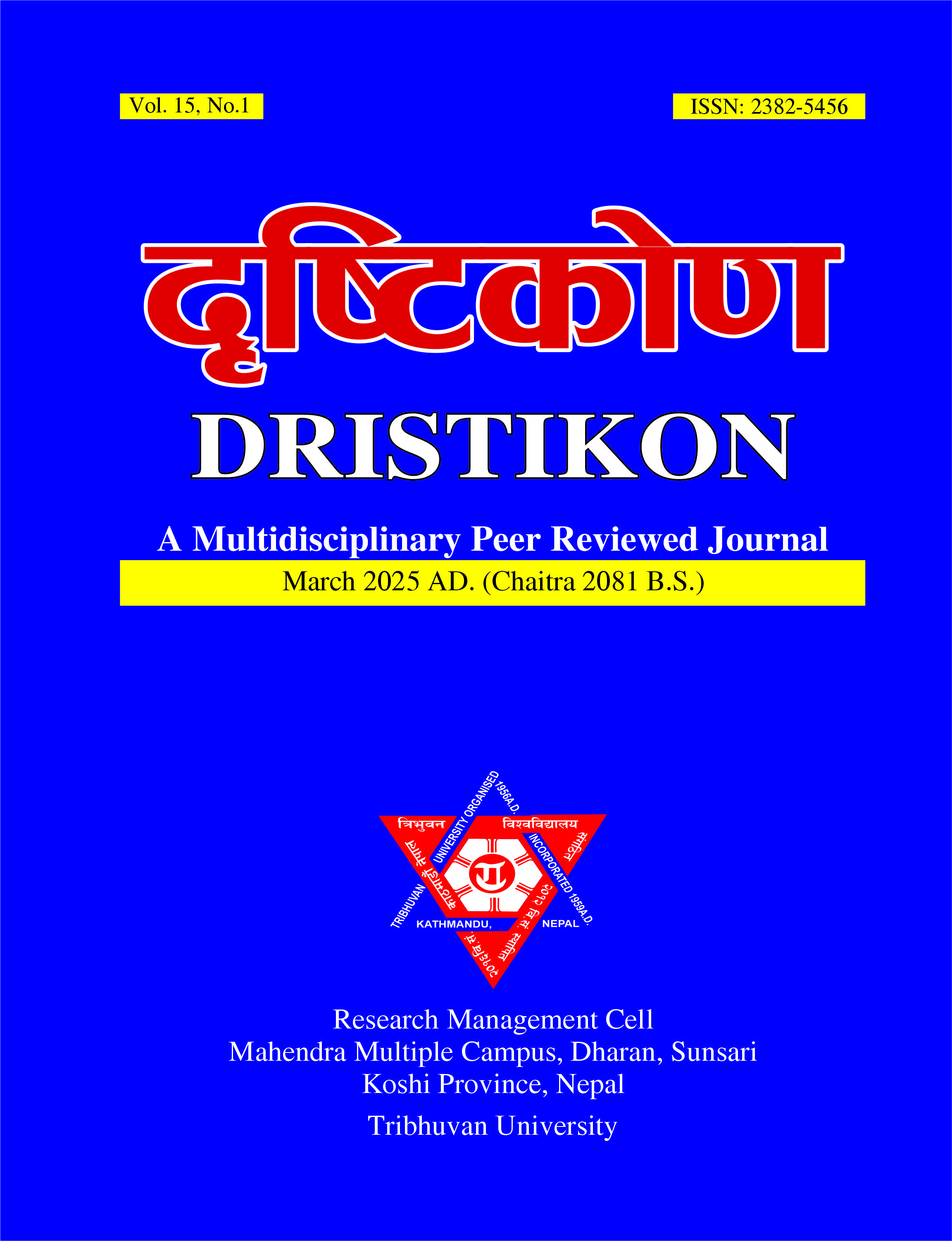Barriers to Women’s Leadership in Nepalese Politics
DOI:
https://doi.org/10.3126/dristikon.v15i1.77122Keywords:
leadership barriers, costly elections, cultural norms, patriarchy, women's political leadershipAbstract
This study explores the barriers hindering Nepalese women from taking on political leadership roles and strategies for enhancing women's leadership. The presence of women in executive positions in government and political parties is the basis for women's political leadership. The research used a qualitative method, purposive sampling, in-depth interviews with nine influential leaders of Nepalese mainstream political parties who have significant knowledge about women's political issues, and analysis of existing literature. The data collected was analysed thematically. Although women have gained 33% of the representation in Nepali politics, Women's elevation to top leadership positions is still low. The path to achieving qualitative leadership is still primarily based on an outdated male model that shuts down women's roles. The findings indicate that women face pervasive challenges within the male-dominated political landscape due to deep-rooted patriarchal ideology, social norms, and attitudes that often favour men in leadership roles. Expensive electoral competition and competing against a male counterpart are challenging for female candidates and hinder women's aspirations despite constitutional rights. Implicit biases and discrimination often lead to unequal opportunities for women's advancement. Suggested strategies for enhancing women's leadership by the respondents reveal that women politicians should seek to build larger coalitions to ensure female representation at the executive level, pushing for legal reforms and leadership training. They further suggested that creating distinct constituencies for women to protect women's seats is essential to transforming the proportional election system into a first-past-the-post system. The research reveals that society's unconscious biases have historically privileged men, perpetuating the assumption that leadership is inherently associated with masculinity. Thus, achieving gender-balanced political leadership that sustains democracy requires empowering women through equal opportunities, supportive policies, leadership training, mentorship, legal protections, national campaigns, and media advocacy.
Downloads
Downloads
Published
How to Cite
Issue
Section
License
© Research Management Cell, Mahendra Multiple Campus, Dharan

